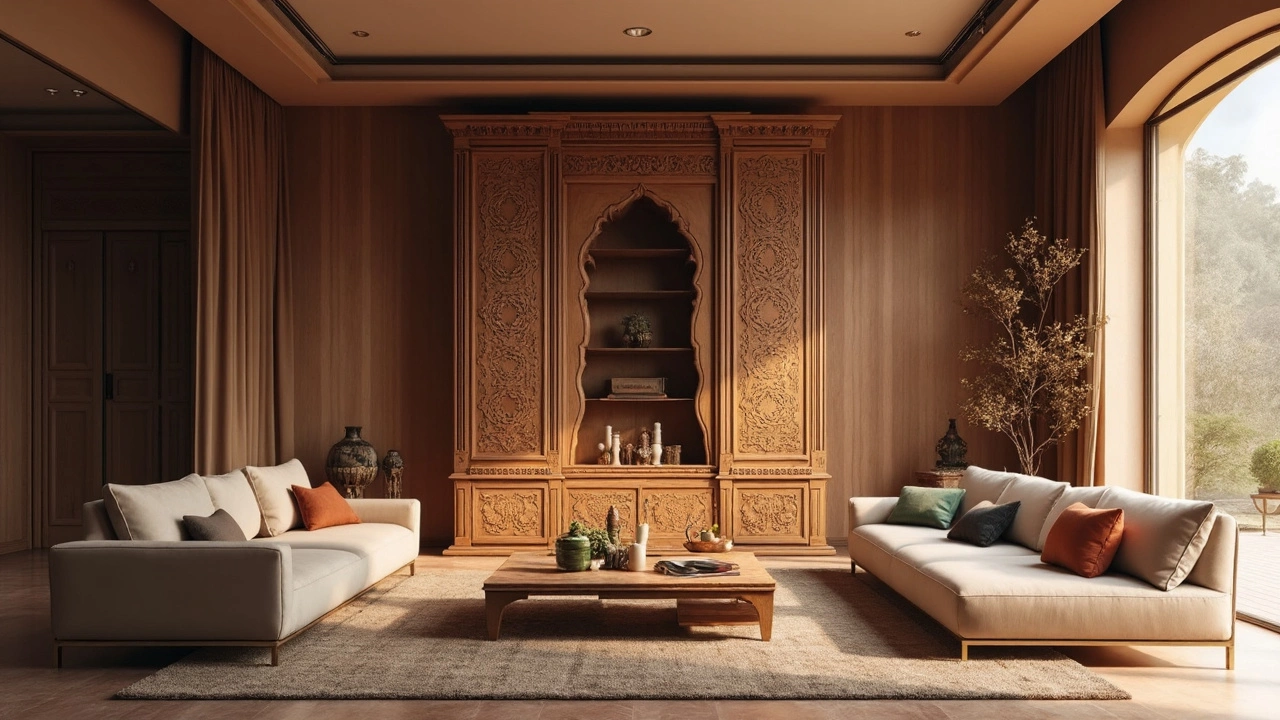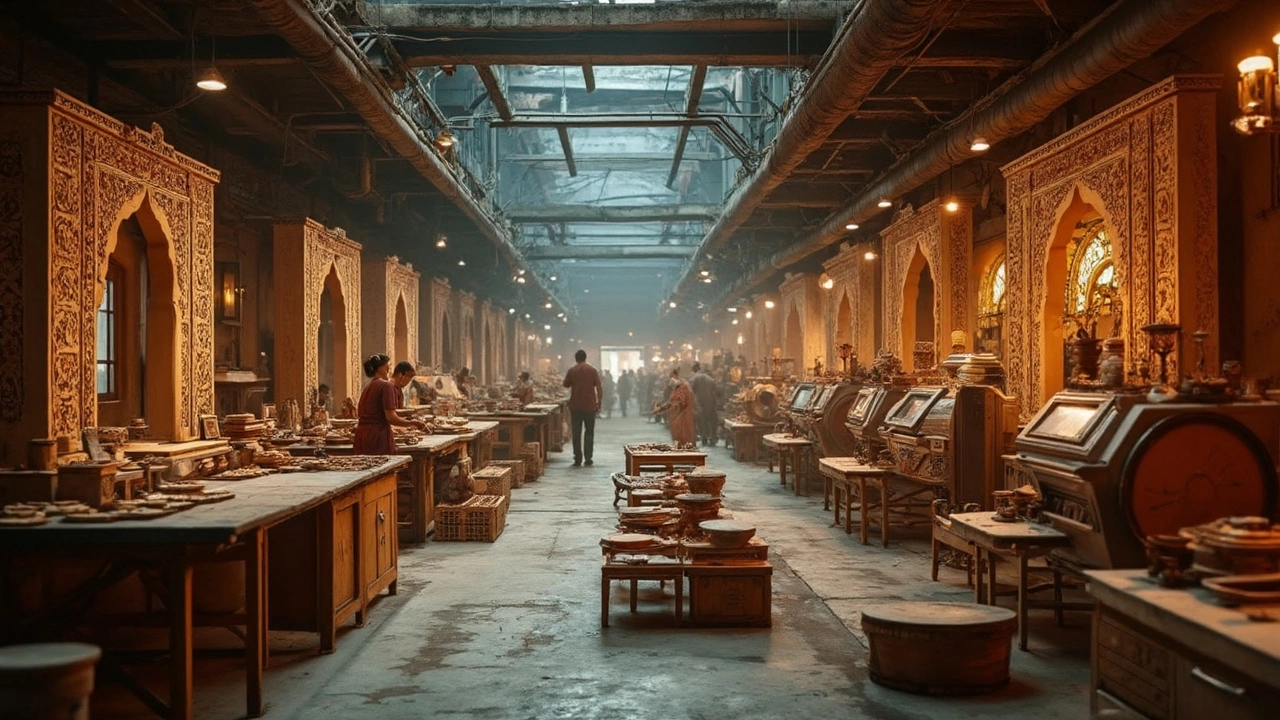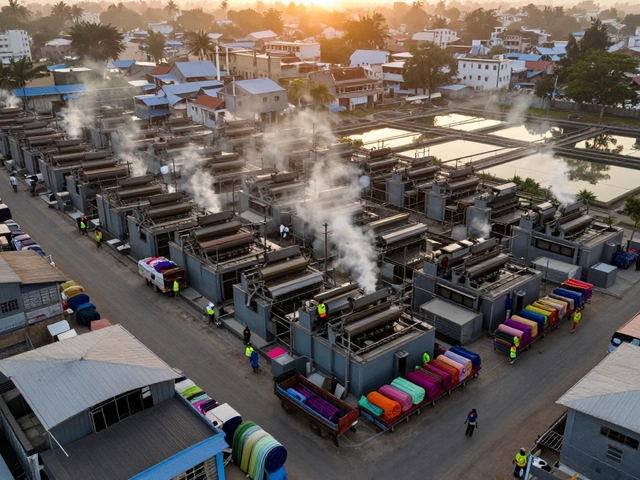India's furniture industry is massive and growing, with a mix of traditional and modern elements. Have you ever wondered who leads this dynamic sector? Well, some big names stand out, like Godrej Interio. They're huge and have been around forever, bringing quality and style to homes across India for decades.
Another giant is Nilkamal, known for their affordable yet durable plastic furniture. They've got a knack for making stuff that fits every budget, which is why they're everywhere from homes to offices. Plus, let’s not forget Durian, which adds a touch of luxury to the industry. Their focus on stylish and elegant designs makes them a favorite among those looking to spruce up their living spaces.
But why do these brands dominate? It's a mix of history, quality, and, importantly, understanding what people really want. They've nailed the art of combining India's rich craftsmanship with modern demands, so it's hard for others to compete. And in a world where everyone's looking for something unique yet practical, that's a winning combo.
- Key Players in the Market
- Trends Shaping the Industry
- Challenges and Opportunities
- The Future of Indian Furniture
Key Players in the Market
In the bustling world of Indian furniture, a few furniture manufacturers stand out as industry giants. Let's kick off with Godrej Interio, a household name synonymous with trust and quality. Established in 1897, these guys have literally been crafting furniture since before the turn of the 20th century. They pride themselves on innovative designs and commitment to sustainability, making them a go-to choice for many households.
Another heavyweight in the sector is Nilkamal. If you've ever bought affordable and durable plastic furniture in India, chances are it was from them. They were founded in the late 80s and have since become a leader by catering to budget-conscious consumers without compromising on style or quality. They’ve got a vast distribution network, which makes their products accessible pretty much everywhere.
Then there's Durian, another key player, best known for their chic and stylish offerings. This brand caters to the premium segment of the market, with a focus on delivering luxury and elegance. They've been around since 1985 and have built a reputation for their exquisite range—whether you’re refurnishing your living room or setting up a high-end office space, Durian has got you covered.
Featherlite deserves a shout-out too, especially for those in the market for office furniture. They're pioneers in the workspace solutions industry, combining functionality with aesthetics. They offer everything from ergonomic chairs to high-tech desks, making them a favorite for modern office setups. Established in 1965, Featherlite has made its mark by focusing on innovation and customer satisfaction.
Indeed, these key players dominate due to their unique blend of tradition and modernity, understanding customer needs, and relentlessly pushing the envelope in design and quality. They've set benchmarks that others in the Indian furniture industry strive to meet.
Trends Shaping the Industry
The furniture industry in India is in the midst of a transformation. The shift towards modular furniture is a big game-changer. People love the flexibility it offers. Move it around, change your space's vibe, and keep everything customizable. Modular items are perfect for the urban crowd living in compact spaces, where every inch counts.
Eco-friendly furniture is also gaining traction. As consumers become more conscious about sustainability, companies are responding by using recycled materials and non-toxic finishes. In fact, a report by the Furniture Export Promotion Council highlighted that over 40% of manufacturers have started integrating sustainable practices into their processes.
"The demand for sustainable furniture has skyrocketed. People want furniture that's both stylish and kind to the planet," says Aman Mehra, a noted industry analyst.
Online furniture shopping has become another trend, positively influencing the growth of local manufacturers. Now, with just a few clicks, you can explore a huge variety of designs without stepping out of your home. E-commerce giants and dedicated online furniture stores are capitalizing on this, offering speedy deliveries and easy returns.
Indian furniture manufacturers are also looking to smart technology. Imagine a coffee table with wireless charging or a bed that adapts to your sleep pattern. Smart furniture is no longer sci-fi. Tech-savvy consumers are willing to invest in pieces that bring convenience and integration into their homes.
The desire for traditional Indian styles isn't fading either. There's a universal appreciation for local craftsmanship. Chairs, tables, and more that reflect regional culture and heritage remain in demand, highlighting the importance of preserving these art forms.
Overall, these trends show that the industry is not standing still. It's evolving, and businesses that embrace these changes are likely to thrive.

Challenges and Opportunities
In the bustling furniture industry in India, navigating challenges while seizing opportunities is crucial for success. One of the primary hurdles is dealing with the influx of cheap imported furniture. While it comes at a lower price, the quality often doesn't match what local furniture manufacturers provide. This puts pressure on Indian companies to innovate and maintain excellent standards.
Another significant challenge is logistics. India's vast geography can complicate supply chain management, making it tricky to ensure timely deliveries. Companies are starting to adopt technology solutions, like real-time tracking, to overcome these logistical hurdles.
On the flip side, opportunities are ripe for those willing to embrace change. The growing trend of sustainable living means there's a big market for eco-friendly Indian furniture. Consumers aren't just looking for style; they're expecting environmentally responsible practices. This opens doors for manufacturers to tap into green technology and recycled materials.
There's also an increasing demand for modular furniture. Urban living spaces are shrinking, and folks want furniture that's not only space-saving but also versatile. Indian manufacturers can capitalize on this by designing modular solutions that appeal to both local and international markets.
Riding the E-commerce Wave
The e-commerce boom is another game-changer. With more people shopping online, furniture companies can reach a broader audience without expanding their physical presence. Setting up a strong digital presence and enhancing online shopping experiences could give a significant edge over competitors.
Crafting a strategy that combines tradition with modernity might just be the ticket for companies to thrive amid such challenges and opportunities. Embracing tech innovations while keeping an eye on consumer trends is key to dominating the industry.
The Future of Indian Furniture
So what does the future hold for the Indian furniture industry? Well, a ton of opportunity and some really exciting trends that could shake things up. As consumers get more environmentally conscious, the focus on sustainable materials and processes is set to become even stronger.
Manufacturers are increasingly looking at ways to reduce waste, use eco-friendly materials, and implement more energy-efficient production methods. A report by the Indian Council for Research on International Economic Relations highlights that, "Sustainability is not just a trend; it’s becoming a core requirement in modern consumer choices."
"Sustainability is not just a trend; it’s becoming a core requirement in modern consumer choices." – Indian Council for Research on International Economic Relations
Another big area of growth is the modular furniture space. Given the rise in urbanization, people are living in smaller spaces. Modular solutions, which offer flexibility, adapt to various needs. This trend offers manufacturers a chance to cater to urban populations with innovative, space-savvy designs.
Technology is playing a big role, too, with increasing use of virtual and augmented reality in the design and shopping experiences. Consumers today want a sneak peek into their future living room before making a purchase, and VR lets that happen. This tech-savvy direction isn’t just a gimmick—it's genuinely changing how people shop.
Of course, there are challenges, like the need for skilled artisans and adapting traditional skills to modern demands. But with India's rich craft heritage, improving training programs can convert that potential into profits.
Opportunities and Challenges
- Customization: An increasing demand for personalized furniture is creating opportunities for bespoke solutions.
- Local Craftsmanship: Blending local artisanal skills with current trends offers a unique selling proposition.
- Infrastructure: Many manufacturers are grappling with logistics and supply chain efficiencies, which need addressing for faster delivery times.
The future looks bright if industry leaders continue to innovate while staying true to quality and craftsmanship. With a nation that's rich in culture, yet poised at the edge of technological advancements, the future of India in the world furniture market seems more promising than ever.





